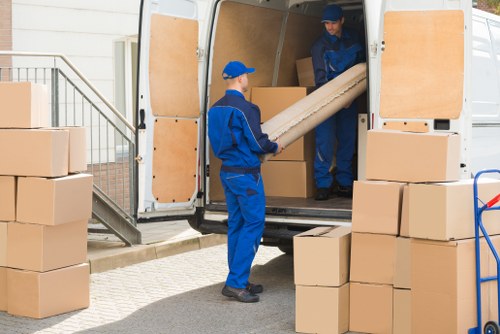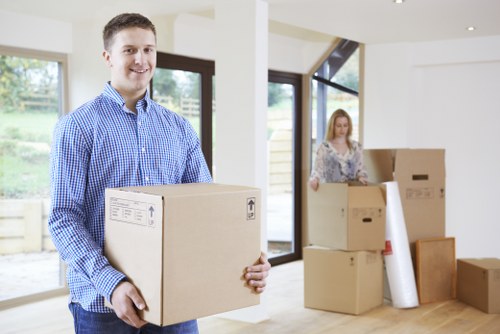Council Rubbish Collection South East London

Managing household waste is a crucial responsibility for any local council, and South East London is no exception. Effective rubbish collection ensures a clean and healthy environment for all residents. This article explores the various aspects of council rubbish collection in South East London, providing valuable information for residents to manage their waste efficiently.
South East London comprises diverse neighborhoods, each with its unique needs and challenges regarding waste management. Understanding how the council handles rubbish collection can help residents stay informed and proactive in maintaining their communities.
The council employs a systematic approach to rubbish collection, incorporating regular schedules, recycling initiatives, and special waste services. This comprehensive system aims to minimize environmental impact and promote sustainability.
Rubbish Collection Schedule

The council rubbish collection schedule is designed to ensure that waste is collected regularly and efficiently. Most areas in South East London have specific collection days for different types of waste, such as general waste, recycling, and bulky items.
Residents are encouraged to familiarize themselves with their local collection schedule to avoid missed pickups and ensure that waste is disposed of correctly. The schedule typically varies between weekdays and weekends, depending on the district.
For example, in Greenwich, recycling collections are usually on Tuesdays and general waste on Thursdays. In Lewisham, the schedule might differ slightly, so it's essential to check with the local council for precise timings.
Recycling Initiatives

Recycling is a significant component of rubbish collection in South East London. The council encourages residents to separate recyclable materials from general waste to reduce landfill usage and promote environmental sustainability.
Commonly recycled items include paper, cardboard, glass bottles, metal cans, and certain plastics. The council provides separate bins for recyclables, which are collected on specific days to streamline the process.
Additionally, the council organizes community recycling drives and provides educational resources to help residents understand what can be recycled and how to sort their waste properly.
Bulk Waste Collection

Bulk waste, such as furniture, appliances, and large electronic devices, requires special handling. The council offers bulk waste collection services to ensure that these items are disposed of safely and responsibly.
Residents can schedule bulk waste pickups by contacting the council in advance. There may be specific guidelines on the types of items accepted and any associated fees for the service.
Proper disposal of bulk waste helps prevent illegal dumping and reduces the strain on local landfills. The council often collaborates with recycling centers to manage bulk items effectively, ensuring that as much material as possible is recycled or repurposed.
Hazardous Waste Disposal

Hazardous waste, including chemicals, batteries, and medical waste, requires careful disposal to avoid environmental contamination and health risks. The council provides designated drop-off points and special collection services for hazardous materials.
Residents should never dispose of hazardous waste in regular rubbish bins. Instead, they should utilize the council's facilities or attend special collection events organized throughout the year.
Proper management of hazardous waste is vital for maintaining public health and protecting the environment. The council offers guidelines and resources to help residents identify and dispose of hazardous materials safely.
Special Collections and Services
In addition to regular rubbish collection, the council offers various special collections and services to cater to the unique needs of South East London residents.
- Garden Waste Collection: Seasonal collection of garden waste such as leaves, branches, and grass clippings.
- Electronic Waste Recycling: Safe disposal and recycling of electronic devices through designated drop-off points.
- Bulky Item Collection: Scheduled pickups for large household items like furniture and appliances.
- Hazardous Waste Disposal: Special services for the safe handling and disposal of hazardous materials.
These services are designed to accommodate different types of waste, ensuring that all materials are handled appropriately and responsibly.
Residents can access these services by visiting the council’s official website or contacting the local waste management office for more information and scheduling.
Recycling Centers and Facilities
South East London is home to several recycling centers and facilities that support the council's waste management efforts. These centers provide residents with convenient locations to drop off recyclables, bulk waste, and hazardous materials.
Recycling centers often accept a wide range of materials, including paper, plastic, glass, metals, and electronics. Some centers also offer specialized services like bicycle recycling, textile recycling, and battery collection.
By utilizing these facilities, residents can contribute to reducing the environmental impact of waste and promoting a sustainable community. The council ensures that these centers are easily accessible and equipped to handle various types of materials.
Community Involvement and Education
Community involvement plays a pivotal role in the success of council rubbish collection programs. The council actively engages with residents through educational campaigns, workshops, and community events to promote effective waste management practices.
Educational initiatives focus on raising awareness about the importance of recycling, reducing waste, and understanding the council's waste collection policies. These programs are designed to empower residents to take an active role in maintaining a clean and healthy environment.
Moreover, the council collaborates with local schools, businesses, and organizations to foster a culture of sustainability and responsible waste management across the community.
Challenges in Rubbish Collection
Despite the council's efforts, rubbish collection in South East London faces several challenges. Increasing population density, fluctuating waste volumes, and the complexity of managing diverse waste streams are some of the key issues.
Additionally, ensuring compliance with recycling guidelines and preventing illegal dumping remain ongoing concerns. The council continuously seeks innovative solutions to address these challenges and improve the efficiency of rubbish collection services.
Addressing these obstacles requires collaboration between the council, residents, and other stakeholders to develop effective strategies and sustain the community’s commitment to responsible waste management.
Technological Advancements in Waste Management
Technological advancements are transforming the way rubbish collection is managed in South East London. Smart waste management systems, data analytics, and automation are enhancing the efficiency and effectiveness of waste collection services.
For instance, the use of sensors in waste bins allows the council to monitor waste levels in real-time, optimizing collection routes and reducing unnecessary pickups. This not only saves time and resources but also minimizes the environmental footprint of waste collection operations.
Furthermore, digital platforms enable residents to track their waste collection schedules, report issues, and access recycling information easily. These technologies facilitate better communication and engagement between the council and the community.
Environmental Impact and Sustainability
The council's rubbish collection services are integral to South East London's environmental sustainability efforts. By promoting recycling, reducing landfill usage, and managing waste responsibly, the council contributes to lowering the community's overall environmental impact.
Implementing sustainability initiatives, such as composting programs and waste reduction campaigns, further enhances the council's commitment to environmental stewardship. These efforts align with broader goals to combat climate change and preserve natural resources.
Residents play a crucial role in these sustainability initiatives by adhering to recycling guidelines, minimizing waste generation, and participating in community programs. Together, the council and residents can achieve significant environmental benefits.
Feedback and Improvement
The council actively seeks feedback from residents to continuously improve rubbish collection services in South East London. Through surveys, public consultations, and community meetings, the council gathers valuable insights into residents' experiences and needs.
This feedback informs policy adjustments, service enhancements, and the introduction of new initiatives to better serve the community. The council is committed to transparency and responsiveness, ensuring that residents' voices are heard and addressed.
By fostering an open dialogue with the community, the council can identify areas for improvement and implement effective solutions to enhance waste management services.
10-15 Closest Areas to South East London
South East London is surrounded by numerous vibrant neighborhoods, each contributing uniquely to the region's waste management landscape. Below are 15 nearby areas, highlighting their proximity and distinctive features related to council rubbish collection:
- Greenwich Known for the Greenwich Market and the Royal Observatory, it has dedicated recycling centers and frequent bulk waste collections.
- Lewisham Features spacious recycling facilities and regular hazardous waste disposal events.
- Bromley: Offers extensive garden waste collection services and multiple recycling drop-off points.
- Bexley: Equipped with advanced waste sorting facilities and community recycling programs.
- Croydon: Implements smart waste management systems and extensive public recycling initiatives.
- Sutton: Known for eco-friendly waste disposal practices and comprehensive recycling education.
- Eltham: Hosts regular bulk waste pickups and specialized hazardous waste collection days.
- Southwark: Provides numerous recycling centers and frequent special waste collection events.
- Lewisham Park: Features community-driven recycling programs and efficient waste collection schedules.
- Catford: Known for its accessible recycling facilities and active participation in council initiatives.
- Orpington: Offers extensive bulk waste collection services and dedicated recycling centers.
- Walworth: Implements innovative waste management technologies and regular recycling drives.
- Peckham: Hosts frequent community recycling events and provides ample recycling resources.
- Mitcham: Equipped with state-of-the-art recycling facilities and comprehensive waste collection services.
- Crystal Palace: Offers diverse waste collection options and active community recycling participation.
Each of these areas collaborates with the council to ensure efficient and sustainable rubbish collection, contributing to the overall cleanliness and environmental health of South East London.
How to Access Rubbish Collection Services
Accessing rubbish collection services in South East London is straightforward for residents. Here are the steps to ensure proper waste disposal:
- Know Your Schedule: Check the local council’s website or contact the waste management office to find out your rubbish collection days.
- Sort Your Waste: Separate recyclables, general waste, and hazardous materials according to council guidelines.
- Prepare Your Bins: Ensure that waste is placed in the correct bins and placed at the designated collection points on the scheduled days.
- Use Recycling Facilities: For items that cannot be collected through regular services, utilize local recycling centers or schedule special collections.
- Stay Informed: Keep up-to-date with any changes in the collection schedule or waste management policies by visiting the council’s website or subscribing to their notifications.
By following these steps, residents can ensure that their rubbish is collected efficiently, contributing to a cleaner and more sustainable South East London.
Additionally, residents should be aware of any specific rules regarding the disposal of prohibited items and adhere to them to avoid fines or penalties.
Benefits of Efficient Rubbish Collection
Efficient rubbish collection offers numerous benefits to South East London residents and the broader community. These advantages extend beyond mere cleanliness, impacting health, the environment, and the local economy.
- Improved Public Health: Regular rubbish collection prevents the accumulation of waste, reducing the risk of diseases and pests.
- Environmental Protection: Proper waste management minimizes pollution, conserves natural resources, and promotes recycling.
- Economic Savings: Efficient waste collection systems can lower costs by optimizing routes and reducing landfill usage.
- Enhanced Community Aesthetics: Clean neighborhoods contribute to a higher quality of life and increased community pride.
- Resource Recovery: Recycling initiatives enable the recovery of valuable materials, supporting sustainable manufacturing practices.
These benefits highlight the importance of robust rubbish collection services and the role of both the council and residents in achieving them.
By prioritizing efficient waste management, South East London can continue to thrive as a clean, healthy, and sustainable region.
Future Plans for Waste Management
The council is continually exploring ways to enhance rubbish collection services in South East London. Future plans focus on adopting innovative technologies, expanding recycling programs, and engaging the community more effectively.
Some anticipated initiatives include the integration of AI-driven waste sorting systems, increasing the number of recycling drop-off points, and launching educational campaigns to further reduce waste generation.
The council is also committed to collaborating with environmental organizations and leveraging green technologies to advance sustainability goals. These efforts aim to ensure that waste management remains efficient and environmentally friendly in the years to come.
Conclusion
Council rubbish collection in South East London plays a pivotal role in maintaining a clean, healthy, and sustainable environment for all residents. Through regular schedules, comprehensive recycling programs, and specialized services, the council effectively manages waste while promoting environmental stewardship.
Residents are encouraged to actively participate in these waste management efforts by adhering to collection schedules, properly sorting recyclables, and utilizing available resources. By working together, the community and the council can achieve significant environmental and societal benefits.
Continued investment in waste management infrastructure, technological advancements, and community education will ensure that South East London remains a model of effective rubbish collection and environmental responsibility.
Frequently Asked Questions
1. What items are accepted in the recycling collection?
Answer: Commonly accepted items include paper, cardboard, glass bottles, metal cans, and certain plastics. It's important to check with the local council for specific guidelines and any restrictions.
2. How can I schedule a bulk waste pickup?
Answer: Bulk waste pickups can be scheduled by contacting the local council through their official website or by phone. You may need to provide details about the items you wish to dispose of.
3. Are there any fees associated with hazardous waste disposal?
Answer: Fees for hazardous waste disposal vary depending on the type and quantity of waste. It's best to consult the council’s waste management office for specific pricing information.
4. Where can I find the rubbish collection schedule for my area?
Answer: The rubbish collection schedule can be found on the local council’s official website or by contacting their customer service department.
5. What should I do if my rubbish was not collected on the scheduled day?
Answer: If your rubbish was not collected, you should contact the council’s waste management service to report the missed pickup and arrange for a reschedule.